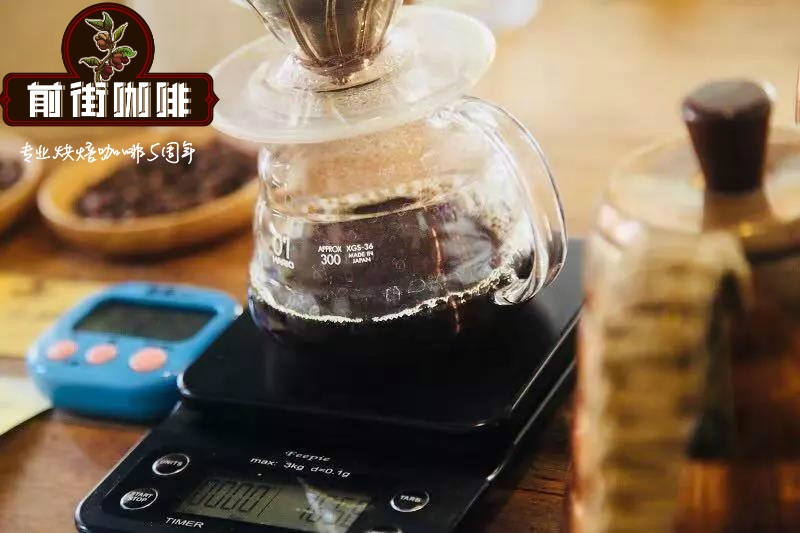How's the coffee from East Timor on the small island? Introduction of small Farmer Coffee in Lakau Village, Emila District, East Timor

Professional coffee knowledge exchange more coffee bean information please follow the coffee workshop (Wechat official account cafe_style)
In the mid-17th century, coffee trees were introduced to Indonesia by the Dutch (some official sources believe that earlier).
The first batch of coffee from Java was sold to Amsterdam in 1712.
Indonesia exported 300000 tons last year, making it the fourth largest coffee producer in the world. About 75000 tons are Arabica coffee.
90% of these coffees are grown by sharecroppers on one hectare or less.
Indonesian coffee tastes special for a variety of reasons.
The most important effects are soil type, height, coffee variety, treatment method and aging method. This combination of natural and human factors creates a unique "terroir" * explanation for each type of coffee.
Indonesian coffee is very diverse in quality, and most of them use the island's origin as its market name:
Such as Sumatra (Sumatra), Sulawesi (Sulawesi), Jawa (Java) or Timur (Timor).
The advantage of Indonesian coffee is that most coffee is characterized by strong, introverted flavor and lively acidity.
The disadvantage is that it may also be more uncomfortable and difficult or a little mildew.
Others show a rustic nature, which is liked by some coffee lovers, while others will hate it.
East Timor is a small island between Indonesia and Australia. In 1999, the World Association of Coffee producing countries (ACPC) announced that Timor-Leste is the world's largest producer of organic coffee, and the main reason why it has become the main producer of organic coffee is mainly due to the long-term colonial rule of Portugal for 450 years and Indonesia for 25 years. Local farmers are too poor to afford pesticides, pesticides and other chemicals. Instead, it makes it an excellent organic coffee, top-notch in both quality and price.
The main local coffee farmers are mostly small-scale farms, organic cultivation yield is not large, but the quality is very good. Coffee beans have large particles but uneven size and color, high mellow thickness and unique spice flavor, moderate sweetness and bitterness, almost no sour taste, suitable for all kinds of baking methods, and a lot of flavor changes. it is excellent whether it is used as a single coffee or as a blend of Italian-style coffee.
Small Farmers in Lakau Village, Emila District, East Timor
Timor Leste Ermera Lacau Village
Typica&Arabi 1500-1700m
Flavor and characteristics:
Sweet tobacco, myrrh, fresh pine, green pepper,
The aroma of herbs, spices and mushrooms is mellow and sweet
END
Important Notice :
前街咖啡 FrontStreet Coffee has moved to new addredd:
FrontStreet Coffee Address: 315,Donghua East Road,GuangZhou
Tel:020 38364473
- Prev

Hand brew coffee, what is hand brew?
To make coffee by hand is to make coffee by hand. Hand-brewed coffee can best show the original taste of coffee. How to make coffee by hand: grind coffee beans. Grind 20g coffee beans moderately, and the grinding particles are slightly thicker than sugar. Soaked filter paper. In order to prevent the purest taste of coffee from being affected, it is necessary to soak the filter paper so as to prevent the taste of the coffee from being affected. Pour in the coffee
- Next

What is Ins Wind Coffee Shop? How to open an Ins style online celebrity coffee shop?
Professional coffee knowledge exchange more coffee bean information Please follow Coffee Workshop (Wechat official account cafe_style) in recent years, with the rapid development and upgrading of China's coffee consumption market, a large number of cafes have sprung up, whether in first-tier cities or third-and fourth-tier small counties. CCTV Finance released data that the number of cafes in China exceeded 14 by the end of 2018.
Related
- What documents do you need to go through to open a coffee shop? coffee shop coffee shop certificate processing process
- How to purchase Coffee beans in small Cafe how to choose a suitable supplier for domestic Coffee supply Company
- How to drink Starbucks Fragrance White Coffee? how to make Australian White Coffee? what Italian coffee beans are recommended?
- The Story of Flora Coffee: the name of Flora Coffee Bean and the implication of the Flowers on Florna Coffee
- How much does a cup of coffee cost? How much is the profit of a cup of coffee? What is the profit of the coffee shop in a year?
- Yunnan small Coffee, known as "fragrant Coffee", introduces the characteristics of Alpine Arabica Coffee producing areas in Yunnan, China
- 2023 latest Starbucks full menu price list how much is a cup of Starbucks coffee what is better to drink the most popular hot and cold drinks recommended
- Starbucks different kinds of Coffee Price list Starbucks menu 2023 Top Ten Best drinks in Starbucks
- Starbucks Spring praise Comprehensive matching Coffee Bean theme Story Packaging implication and taste description
- The cost of a cup of coffee latte American coffee cost price and selling price

